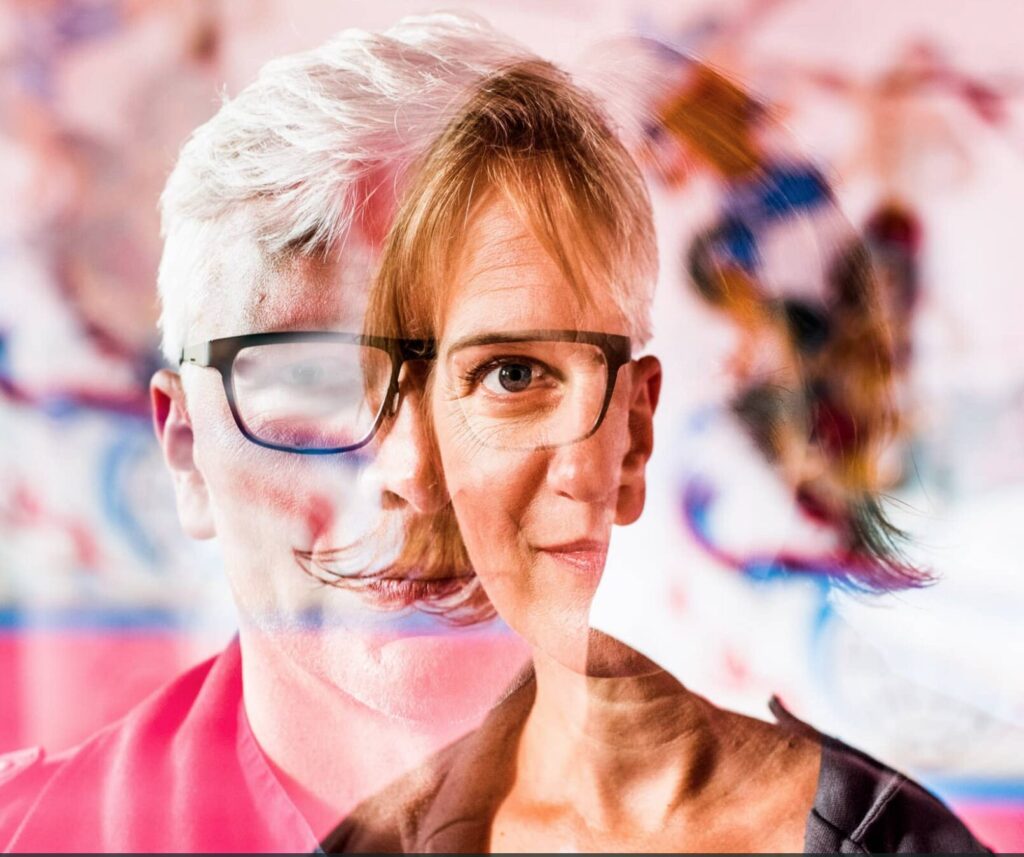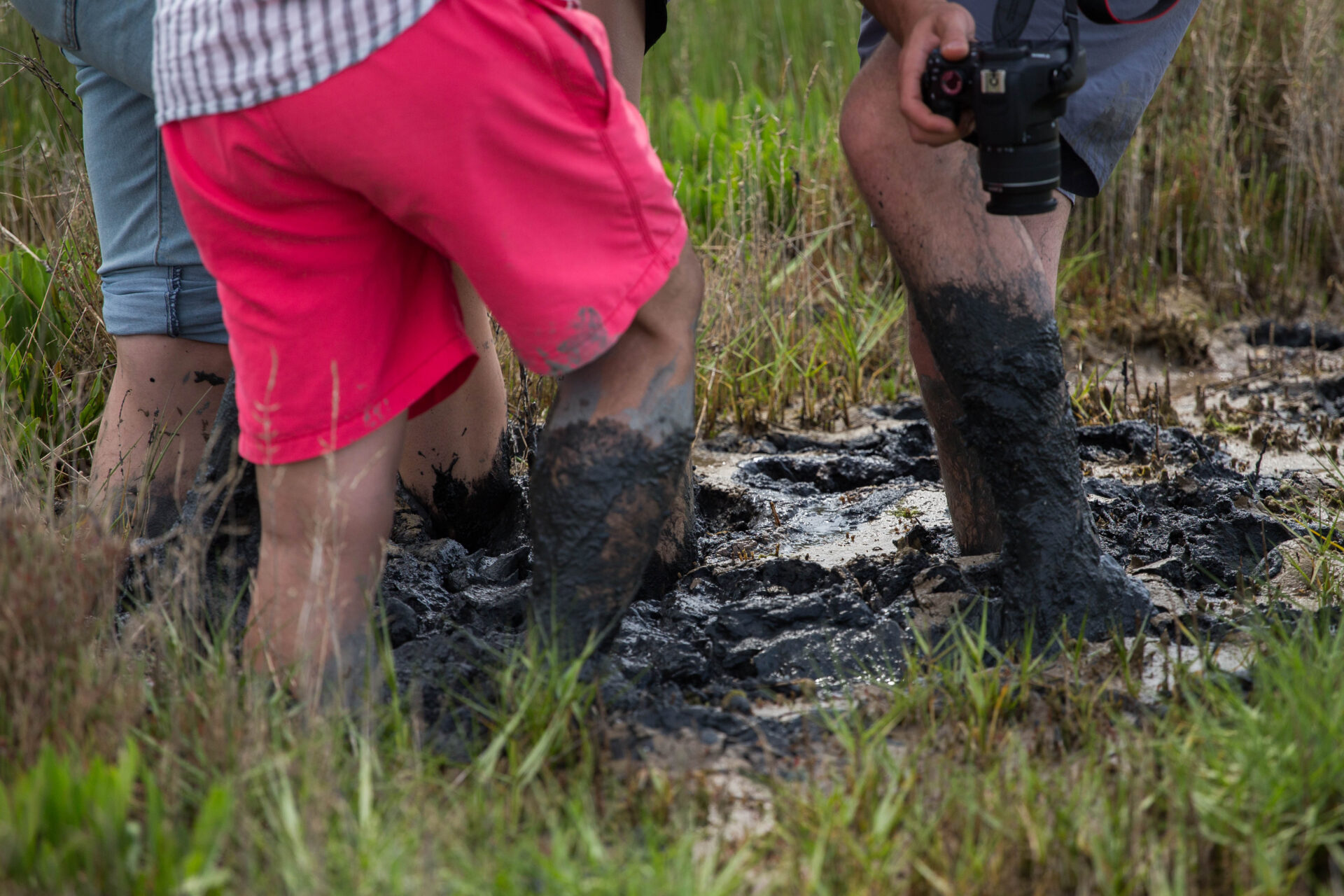The next encounter of ‘Pedagogies of Care’ series’ be on 14th of November, we will host Nomeda and Gediminas Urbonas from MIT. In conversation with Andris Brinkmanis, they will present their interdisciplinary artistic practice, focusing in particular on their ongoing project The Swamp School. To register for the event, please click here.
Nomeda & Gediminas Urbonas are artists, educators, researchers, and co-founders of the Urbonas Studio, an interdisciplinary research practice that facilitates exchange amongst diverse nodes of knowledge production and artistic practice in pursuit of projects that transform civic spaces and collective imaginaries. They also collaborate with experts in different cultural fields to develop practice-based artistic research models that allow participants—including their students—to pursue projects that merge urbanism, new media, social sciences and pedagogy to critically address the transformation of civic space and ecology.

Gediminas Urbonas is artist, researcher, and professor at Massachusetts Institute of Technology’s program in Art, Culture, and Technology. As a co-founders of the Urbonas Studio (together with Nomeda Urbonas), they developing interdisciplinary research practice that facilitates exchange amongst diverse nodes of knowledge production and artistic practice in pursuit of projects that transform civic spaces and collective imaginaries. Urbonas taught and lectured extensively internationally. Full-time teaching positions include NTNU – Norwegian University for Science and Technology (2005-2009). In adition to MIT where they opened a new research program focusing on Climate Visions, they are also Visiting Professors at VDU – Vytautas Magnus University in Kaunas, and NABA – Nuova Accademia di Belle Arte in Milano.
Urbonas have exhibited internationally including the São Paulo (twice), Berlin, Moscow (twice), Lyon, Gwangju, Busan, Taipei and Helsinki Biennales, Folkestone Triennial – and Manifesta and Documenta exhibitions – among numerous other international shows, including a solo show at the Venice Biennale, MACBA in Barcelona and National Gallery of Art in Vilnius. Their work was awarded a number of high level grants and residency awards, including the Lithuanian National Prize (2007); a Prize for the Best International Artist at the Gwangju Biennale (2006) and the Prize for the best national pavilion at the Venice Biennale (2007). Urbonas are co-founders of the JUTEMPUS interdisciplinary art program (1993), the first independent artist-led initiative in Lithuania; Vilnius Interdisciplinary Lab for Media Art (VILMA); the VOICE, a net based publication on media culture (www.balsas.cc); they are co-founders of the Transaction Archive and co-directors of the Pro-test Lab Archive. Their writing on artistic research as form of intervention into social and political crisis was published in the books Devices for Action (2008) by MACBA Press, Barcelona and Villa Lituania (2008) by Sternberg Press. Urbonas co-edited Public Space? Lost and Found (MIT Press, 2017) that brings together artists, planners, theorists and art historians in an examination of the complex inter-relations between the creation and uses of public space and the roles that public art plays therein. Urbonas 5 year-long research project on Zooetics exploring the potential to connect with the noetics and poetics of non-human life in the context of the planetary ecological imbalance, concluded in 2018 with the symposium at MIT and opened a new research program focusing on Climate Visions. Urbonases curated the Swamp School – future learning environment at the 16th Venice Architecture Biennale 2018. Their co-edited volume Swamps and the New Imagination: On the Future of Cohabitation in Art, Architecture and Philosophy published by Sternberg Press and distributed by MIT Press, is forthcoming in 2024.
Urbonas are currently working on several large scale commissions and research projects that investigate movement in artistic practice towards less tangible and more complex spaces of public/private contestation and shifts toward new environmentalism in public space discourse and contemporary understandings of nature.
Their work is included in the collections of Museu d’Art Contemporani de Barcelona – MACBA, FRAC – Nord-Pas de Calais in Dunkerque, Helsinki Art Museum, Kiasma – Museum of Contemporary Art in Helsinki, Schwerin State Museum of Art in Germany, Centro per l’Arte Contemporanea Luigi Pecci in Italy, National Gallery of Art in Vilnius, and MO museum in Lithuania among others.
